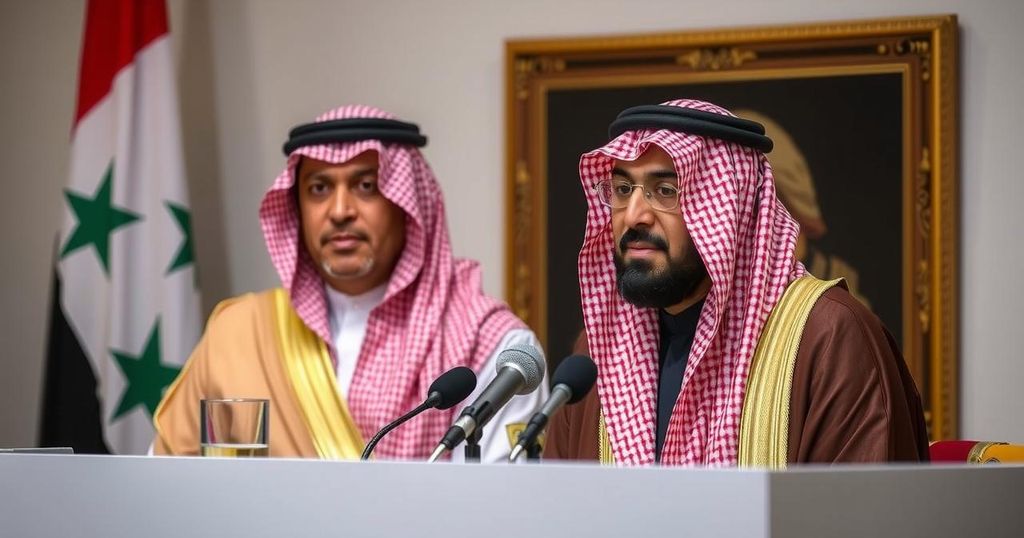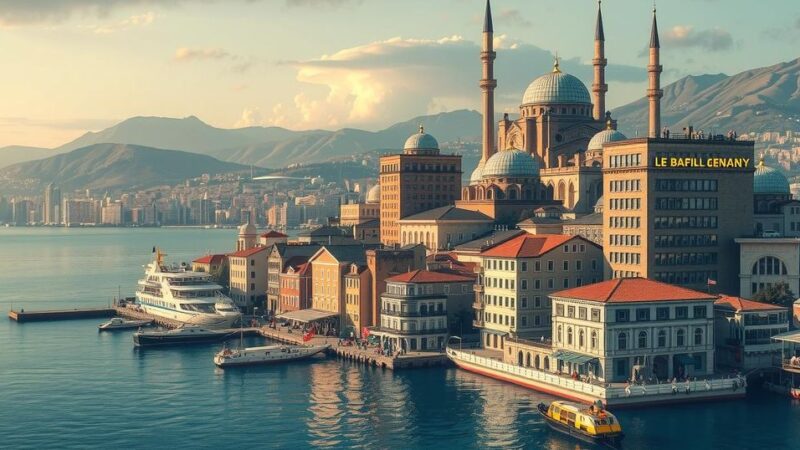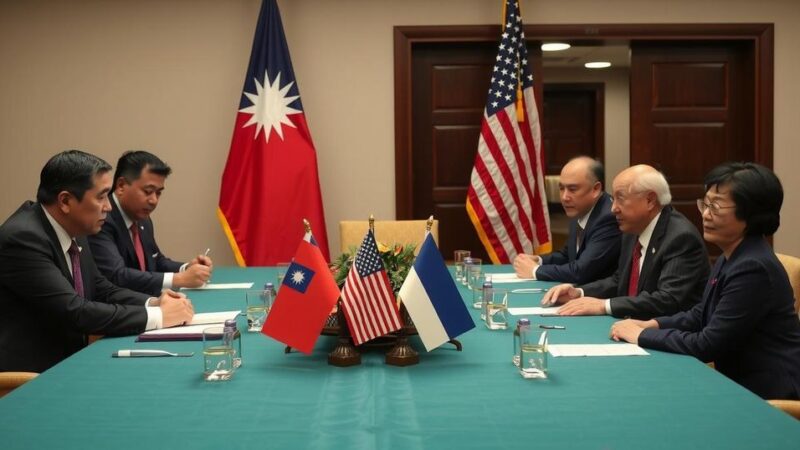Syria’s Islamist leaders have requested the U.S. to lift sanctions, claiming these impede recovery efforts post-conflict. During a visit to Qatar, Foreign Minister Asaad Hassan al-Shibani emphasized the need for international support, outlining a roadmap for rebuilding Syria and preventing foreign interference. This visit follows a significant political transition in Syria’s leadership and signals a desire for regional partnerships.
In a recent diplomatic visit to Doha, Syria’s new Islamist leadership called upon the United States to lift its sanctions imposed on the country, asserting that these restrictions hinder Syria’s recovery from the prolonged conflict. Foreign Minister Asaad Hassan al-Shibani articulated the sentiment that sanctions currently serve as obstacles to the Syrian populace’s aspirations for essential services and international partnerships. He stated, “These sanctions constitute a barrier and an obstacle to the rapid recovery and development of the Syrian people who await services and partnerships from other countries.”
Shibani’s remarks came following discussions with Qatar’s Prime Minister Sheikh Mohammed bin Abdulrahman Al Thani, where he emphasized Qatar’s potential as a partner in Syria’s new phase, particularly since the nation had previously supported opposition forces during the 2011 uprising against the Assad regime. Accompanied by key officials including the Defence Minister and Head of Intelligence, Shibani also outlined a comprehensive roadmap for Syria’s future, aimed at fostering stability, rebuilding infrastructure, and addressing the civil rights of the Syrian citizens.
Additionally, an official from Qatar conveyed that discussions centered on preventing foreign interference in Syrian matters. Shibani plans to continue his diplomatic endeavors with visits to the United Arab Emirates and Jordan, affirming his objectives to support Syria’s political transition and encourage partnerships amidst efforts of reconstruction and stability in the region. This diplomatic outreach by the new administration highlights their intentions to cultivate international relations while addressing the domestic challenges facing Syria.
The context of this article revolves around the recent shift in Syria’s political landscape following the ousting of former President Bashar al-Assad by rebel forces, which marked a significant change in governance. The Islamist rulers of Syria are now seeking to revitalize the nation after years of civil unrest and devastation while grappling with international sanctions that have complicated recovery efforts. The new leadership’s appeal to lift these sanctions signals their aim to rebuild relations, not only within the Arab world but also with global powers such as the United States, as they navigate a challenging post-war scenario.
In conclusion, Syria’s new Islamist administration is proactively seeking to remove U.S. sanctions that they claim impede recovery efforts in the war-torn country. Through diplomatic engagements in Qatar and upcoming visits to regional allies, they aim to stabilize the nation, ensure civil rights for their citizens, and foster partnerships necessary for reconstruction. These efforts reflect a commitment to change and a desire for improved relations in the international community, particularly after a tumultuous decade of conflict.
Original Source: www.hindustantimes.com







